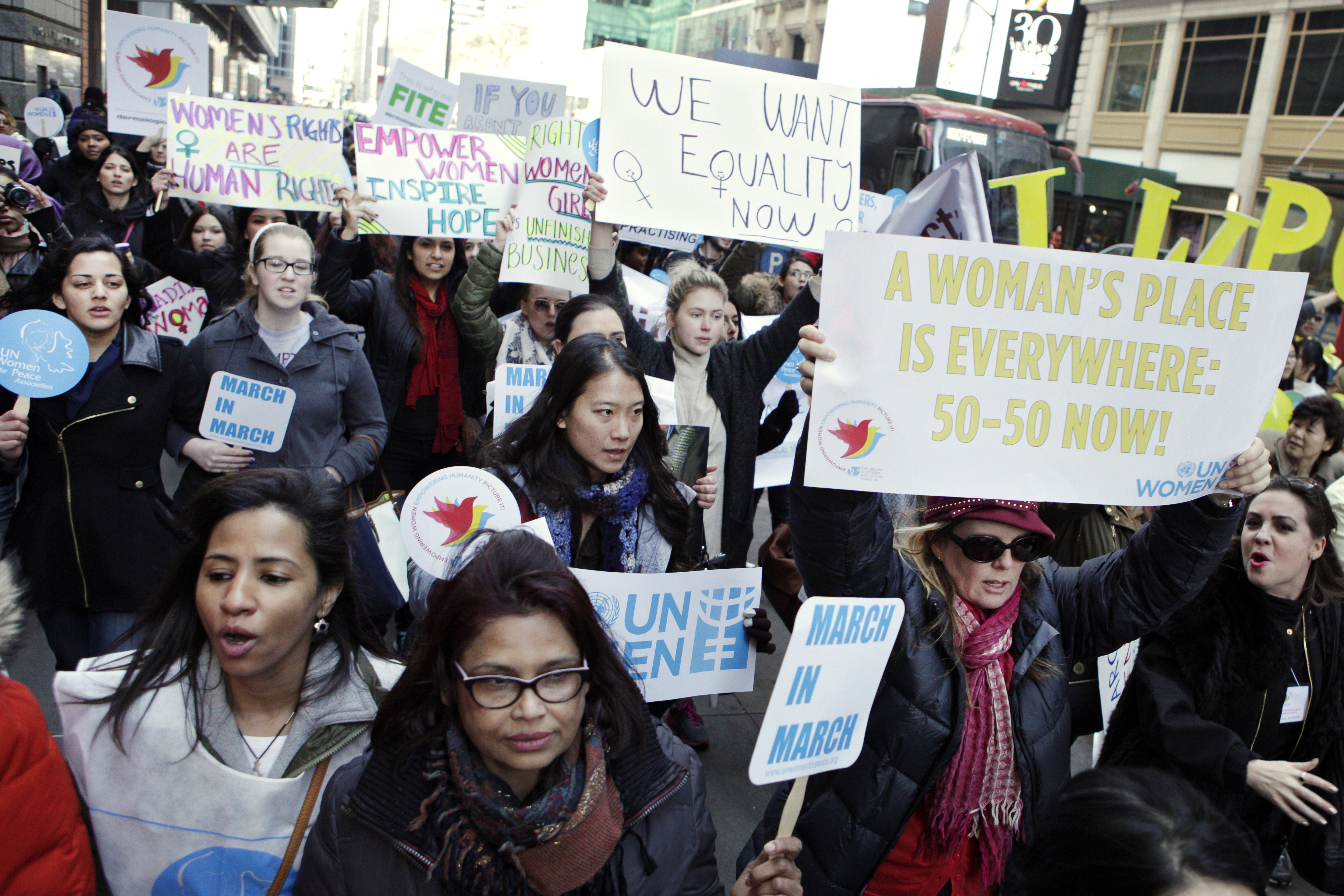The full and equal participation of women in decision-making processes in all spheres of life is fundamental to achieve gender equality and the empowerment of women. In 2012, at COP 18 in Doha, a decision was adopted by the Parties to the United Nation’s Framework Agenda on Climate Change which adopted the goal of gender balance for the Convention’s boards and bodies and encouraged Parties to strive for the same goal in their delegations. The purpose of this decision was to improve women’s participation in climate change decision-making processes and inform more effective climate change policy that addresses the needs of men and women equally.
Following the landmark decision at COP 18, dubbed the Doha Miracle on account of the speed at which it was adopted, the Mary Robinson Foundation – Climate Justice and UN Women released a report, The Full View: Advancing the goal of gender balance in multilateral and intergovernmental processes. The report highlighted best practices and lessons learned from various sectors to promote women’s voice and agency and proposed a set of recommendations on ways to advance the goal of gender balance by Parties and observers to the UNFCCC.
At COP 22 in Marrakech this week, the Foundation and UN Women will launch a second edition of the Full View. The new edition examines developments in the equal participation and representation of women in decision-making processes and seeks to expand on the lessons learned for the achievement of positive outcomes to promote women’s voice and agency. The Full View Second Edition: Ensuring a comprehensive approach to achieve the goal of gender balance in the UNFCCC process also makes concrete recommendations on measures to improve gender balance in the UNFCCC process.
The impacts of climate change are different for men and women, with women likely to bear the greater burden in situations of poverty. Climate impacts are stress multipliers that further entrench existing social inequalities. Women living in poverty are acutely vulnerable because they often have no independent income or land rights – key determinants in strengthening resilience to climate shocks. In many countries women are responsible for the provision of water and food for their families. When the usual sources of food and water are disrupted, women must travel further, spend more time working for less return, make choices about whether or not they can send a child to school or which family member can eat. Left unchecked, climate change will exacerbate the challenge of achieving gender equality.
The Paris Agreement adopted by 195 countries at COP 21 calls for climate action that respects and promotes gender equality and women’s empowerment. However, despite the goal of gender balance adopted three years prior, only 32% of delegates at COP 22 were women. To achieve this ambition, the implementation of the agreement must ensure that climate action responds to the needs of women and men. Gender-responsive climate policy requires comprehensive strategies to ensure that women are involved in the design, implementation and monitoring in all aspects of climate action. Steps must be taken to overcome structural barriers women face and enhance participation of women at local, national and international levels. In keeping with this, Parties to the UNFCCC must ensure that the goal of gender balance in the composition of national delegations and in the membership of boards and bodies of the Convention is achieved.
COP 22 in Marrakech, Parties are negotiating a new decision on gender and climate change which should be adopted by the end of the week. The agreement recognises the urgent need to improve the representation of women in the UNFCCC process and calls on Parties to increase the active participation of women. The decision also requests research and analysis on the barriers to the full and equal participation of women in climate related processes. This work will likely be informed by the substance of the new Full View.
Related links
Improving Women’s Participation in the UNFCCC process – MRFCJ/ UN Women event at COP22
Our Work on Women’s Leadership on Gender and Climate Change
Principle of Climate Justice – Highlight Gender Equality and Equity


